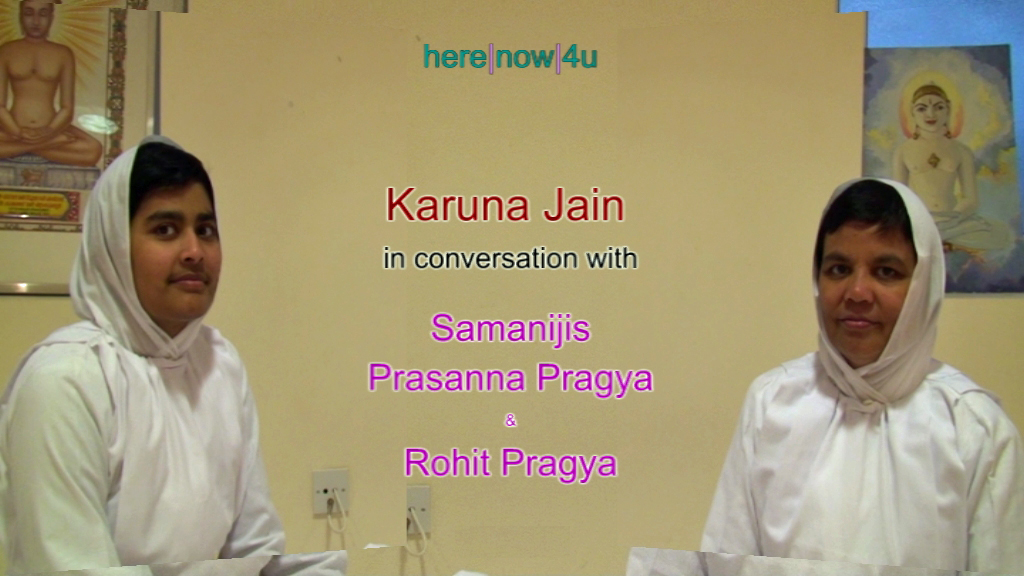This is a good tradition for interviews, but was not what I had intended. I requested Samanijis to participate in some kind of experiment by taking the video of a spontaneous discussion between us. The questions I intended to put where those moving me since quite some time, coming up when I was studying the book Training In Nonviolence - Theory & Practice and preparing my London trip. They had not explicitly been formulated. So I pleaded for unprepared responses from Samanijis to my flatfooted notions. |

Samanijis not only liked the idea, but masterly realised it! The interview was taken on one only evening for 21 minutes in a whole, without any interruption or correction. [For online publication the video had to be cut into 3 parts.]
Questions on the management of relations came to my mind, as relations very often cause troubles ending in conflicts. Further,
- how to treat all people equally, and
- how those, not interested in good relations to others.
- I wanted to know what should be understood by universal friendliness, and
- what about love, if there is no attachment to special persons.
- I asked for leading principles behind relations to others,
- how to practice good relations,
- the meaning of Karuna (compassion),
- how to avoid becoming an unhappy person, and
- how the practice of non-violence helps us in concrete day-to-day life.
- Last not least I wanted to know which event in the last three years had the most impact on Samani Prasanna Pragyaji during her stay in London.
Samanijis Prasanna & Rohit Pragya talked on
- how to maintain balanced relationships,
- why detachment is important,
- what is meant by universal friendship and universal love, and
- how the realisation of only four reflections,
- friendliness,
- appreciation of others’ virtues,
- compassion, and
- neutrality,
is supporting the peace of mind.
Meditation and contemplation are taught in the course for non-violence in daily life, for the practice of the same is an adequate means to go beyond the material world and to discover the immaterial part of our nature. Many people get trapped in the one-sided focus on the material aspect of our life resulting in feelings of unhappiness and senselessness.
According to Samani Rohit Pragyaji the basic and equally most important principle is not to hurt any living being. This is the best way to realise reverence for life in all its facets. She continued that all material things, body included, are transitory. For leading a balanced life, including material and immaterial aspects and based on sustainability this insight is very helpful.
In her three London years the conjoint celebration of Mahavir Jayanti by all London Jain communities had the most impact on Samani Prasanna Pragyaji. She had suggested it after she had to rush to many different celebrations one year before.
Samanijis had given their precious time for the video session, and I felt happy and blessed. It was an atmosphere full of confidence, and there was no tension at all. I am in the video only by voice as I was behind the camera.
Thank you so much, Samanijis Prasanna & Rohit Pragya!
 Editor Carla Geerdes
Editor Carla Geerdes
